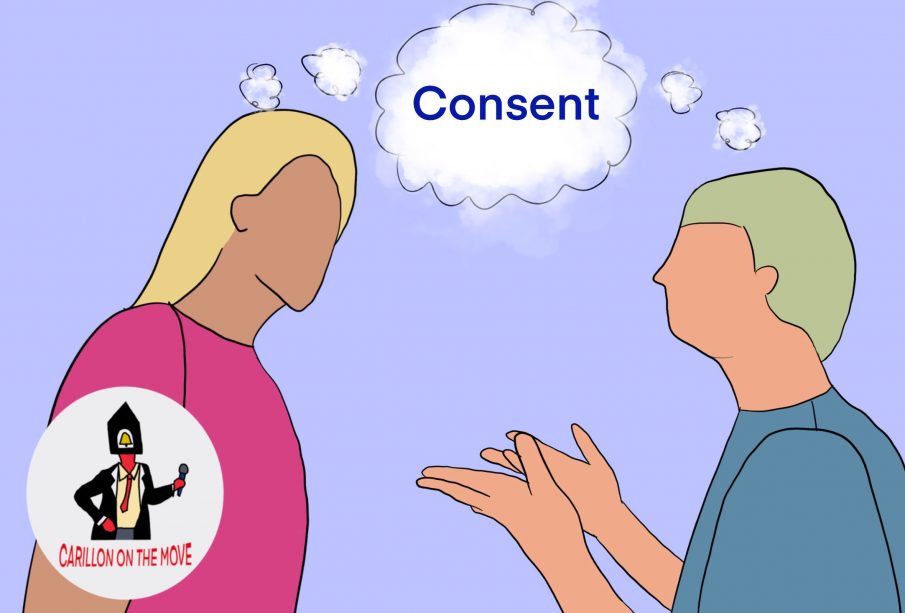Consent on campus

UofR students weigh in on how they think about consent
Consent, while spoken about widely, is still a topic filled with misunderstandings and poor intentions. Many have taken up the mantle of ensuring that consent is boldly spoken on to make people more comfortable with the topic, while others have shied away, labeling this issue that impacts everyone as ‘controversial.’
The Carillon wanted to get a better look at how students conceptualize consent, so we asked a few. First-year Statistics and Economics student Matthew Thibeault put his ideas on consent simply: “I think of a ‘yes’ or a ‘no,’ and if it’s a no then move on, and that’s that.”
When asked what some individuals might misunderstand about consent, Thibeault provided some insight. “I think they just misunderstand the respect piece of it, and that if someone tells you ‘no’ you have to respect their decision. And each person is their own and you can’t make up a decision for someone else, and that’s probably what they’re missing. They’re too controlling.”
Madison Hautz, a Kinesiology student in her final year, echoed Thibeault’s sentiment on respect but took things deeper to address how conversations on consent can be received. “I think they [people attempting conversations] are scared that that person might get defensive about consent in the first place. Even though they might just be asking for a comfort reason or whatever, I think it’s just something that’s not, there’s a stigma around it a little bit I think.”
Bansari Patel, a first-year in the Health Studies diploma program, noted that some people willfully misunderstand even when educated. “Some people, they take [it] in a wrong way, and I think that [misunderstandings] happen in every place. Not only in university or in study places but in every place, like workplaces.”
Patel was also clear in explaining that while she feels comfortable speaking on consent with some people, gender does play a part. “I am also shy or ashamed whenever I’m talking with my opposite gender, like a man or something, I will definitely be shy or ashamed. But with teachers, like a girl or a woman, I will be not.”
When it comes to bettering education on consent, Patel advocated for instructors in their courses to boldly speak at length on the topic. “In studies, whenever we heard that word ‘consent,’ they have to focus, I think, one whole lecture on this. Like 45-50 minutes on that so that students can understand about that, and they will not take them in a wrong way, and they can understand.”
Hautz also spoke to the benefit of education, noting that proactive efforts to educate will benefit everyone more than reactive measures after consent violations have occurred. “I’ve definitely seen posters about consent and more ads on social media and that kind of stuff which helps because I think even if you get a glimpse of it, you’re thinking about it, and you’re thinking about ‘Maybe next time I’m with this person I should talk to them about consent.’ But yeah, I think it’s just something that needs to be understood from a younger age compared to letting them make a mistake and having to learn about it, I think it needs to be learned first.”
Each interview subject was asked at the end of the interview whether they had any additional thoughts on consent, and all appeared to struggle to articulate their thoughts. Thibeault perhaps put it most succinctly when he briefly summed: “This is a deep topic.”
Consent truly is a deep topic, with implications reaching all. As such, and as these students have noted, efforts to educate and understand must be championed by all.








